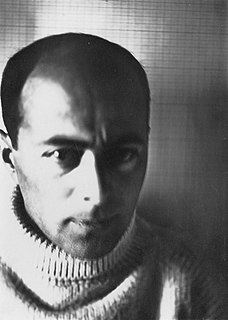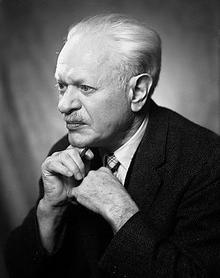A Quote by Nathaniel Hawthorne
When the Artist rises high enough to achieve the Beautiful, the symbol by which he makes it perceptible to mortal senses becomes of little value in his eyes, while his spirit possesses
itself in the enjoyment of the reality.
Related Quotes
Each man lives for himself, uses his freedom to achieve his personal goals, and feels with his whole being that right now he can or cannot do such-and-such an action; but as soon as he does it, this action, committed at a certain moment in time, becomes irreversible, and makes itself the property of history, in which is has not a free but a predestined significance.
Clearly the hardest thing for the working artist is to create his own conception and follow it, unafraid of the strictures it imposes, however rigid these may be... I see it as the clearest evidence of genius when an artist follows his conception, his idea, his principle, so unswervingly that he has this truth of his constantly in his control, never letting go of it even for the sake of his own enjoyment of his work.
Sport, properly directed, develops character, makes a man courageous, a generous loser, and a gracious victor; it refines the senses, gives intellectual penetration, and steels the will to endurance. It is not merely a physical development then. Sport, rightly understood, is an occupation of the whole man, and while perfecting the body as an instrument of the mind, it also makes the mind itself a more refined instrument for the search and communication of truth and helps man to achieve that end to which all others must be subservient, the service and praise of his Creator.
Man is more than his environment. It is from the innate quality of the Spirit in him, his inner storehouse, that he draws those ideas, his intuitions, which unify his perceptions of the external world instantaneously with a value which is qualitative and not quantitative, and which he embodies in the works of his culture - those achievements which belong not only to one particular time but to all times, and mark the path of his upward progress.
The master in the art of living makes little distinction between his work and his play, his labor and his leisure, his mind and his body, his information and his recreation, his love and his religion. He hardly knows which is which. He simply pursues his vision of excellence at whatever he does, leaving others to decide whether he is working or playing. To him he's always doing both.
From the root, the sap rises up into the artist, flows through him, flows to his eye. Overwhelmed and activated by the force of the current, he conveys his vision into his work. And yet, standing at his appointed place as the trunk of the tree, he does nothing other than gather and pass on what rises from the depths. He neither serves nor commands he transmits. His position is humble. And the beauty at the crown is not his own; it has merely passed through him.
Do we, mad as we all are after riches, hear often enough from the pulpit the spirit of those words in which Dean Swift, in his epitaph on the affluent and profligate Colonel Chartres, announces the small esteem of wealth in the eyes of God, from the fact of His thus lavishing it upon the meanest and basest of His creatures?
The wonder of an artist's performance grows with the range of his penetration, with the instinctive sympathy that makes him, in his mortal isolation, considerate of other men's fate and a great diviner of their secret, so that his work speaks to them kindly, with a deeper assurance than they could have spoken with to themselves.







































